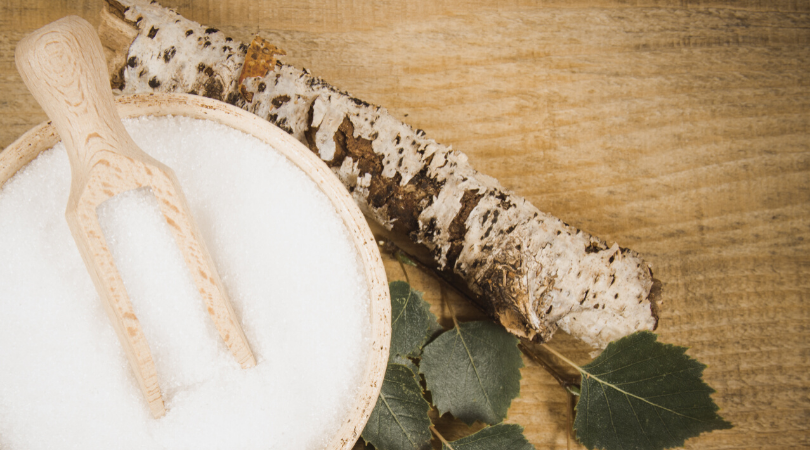Ingredient Spotlight: Xylitol - Your Weapon for Naturally Good Oral Care
Posted by Naturally Safe Cosmetics on 13th Nov 2019
When it comes to oral care and dental hygiene products, fluoride has long been used to provide protection against tooth decay. If, however, you would prefer not to have fluoride in your oral care products (toothpaste, mouthwash, etc.), you’ll be glad to know there is an effective alternative called Xylitol.
What is Xylitol?
Xylitol is a naturally occurring alcohol that’s found in most plant material, including many fruits and vegetables. Apparently even humans produce small quantities of Xylitol via normal metabolism. It is classified as a sugar alcohol. Xylitol is often extracted from birch trees to be processed for commercial use.

Xylitol is found in many natural products. Image source: Canva
What are the benefits of Xylitol?
You may be familiar with Xylitol in food and drink products, where it is often used these days as a sugar substitute. That’s because it has a similar sweet taste as sugar but contains 40% less calories. The other benefit of Xylitol in food is that is has a very low Glycemic Index so it doesn’t spike blood sugar or insulin levels.
Aside from being used in food and drinks, Xylitol is also emerging as a common ingredient in oral care products and that’s because it has been shown to boost dental health.
Apparently, Xylitol sweetened gum can help reduce ear infections in children and combat candida yeast infections.
It is also said that Xylitol may increase collagen production and reduce the risk of osteoporosis.
Xylitol feeds the friendly bacteria in your gut, acting as a soluble fibre and improving digestive health.
Which products contain Xylitol?
Xylitol can be found in dental hygiene products like natural toothpaste and mouthwash, chewing gum, mints and a host of foods, especially sugar-free foods. You can also buy Xylitol from the supermarket as a white, crystalline powder to use as a sugar substitute.
Why is Xylitol used in oral care products?
Traditional toothpaste and other oral care products usually contain fluoride to help prevent tooth decay. In many natural toothpaste and oral care products, fluoride has been replaced with Xylitol. This is because studies have shown that Xylitol can also help prevent tooth decay. Obviously, other considerations like a healthy diet and good oral hygiene are important factors, too.
How does Xylitol prevent tooth cavities?
Xylitol helps prevent tooth decay by inhibiting the growth of the harmful bacteria that cause cavities. These bacteria (known as Streptoccocus mutans) normally feed on glucose from food but they cannot utilise Xylitol for fuel and effectively starve. Over time, the quality of the bacteria in the mouth changes with fewer decay-causing bacteria surviving on the tooth surfaces. In turn, less plaque forms and the level of acids attacking the tooth surface is lowered. Interestingly, one study showed that Xylitol sweetened chewing gum reduced the levels of bad bacteria in the mouth by 27-75%, while friendly bacteria remained constant.
Which brands use Xylitol in their oral care products?
Naturally Safe Cosmetics stocks Xylitol-containing products from brands like The Natural Family Co. and Grin. The Natural Family Co. actually put a whopping 25% Xylitol in their toothpaste varieties - amongst the highest available!
Is Xylitol safe?
Xylitol has been approved for safety by the U.S. Food and Drug Administration, the World Health Organization’s Joint Expert Committee on Food Additives and the European Union’s Scientific Committee for Food.
On an interesting note - just like chocolate, garlic, onions and grapes, while Xylitol is safe for human consumption, it is toxic for dogs.
Sources: webmd.com; healthline.com; California Dental Association
Disclaimer: The author and Naturally Safe Cosmetics are not health professionals. Any information or advice in this article is of a general nature only and not intended to diagnose, treat, cure or prevent any disease. For professional advice regarding your own oral and general health, please contact your GP or other healthcare practitioner.


